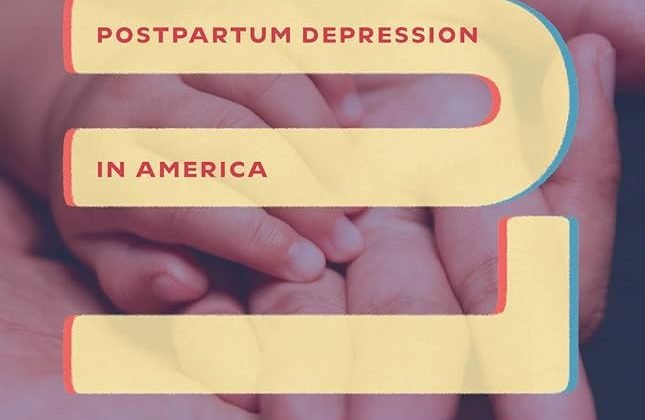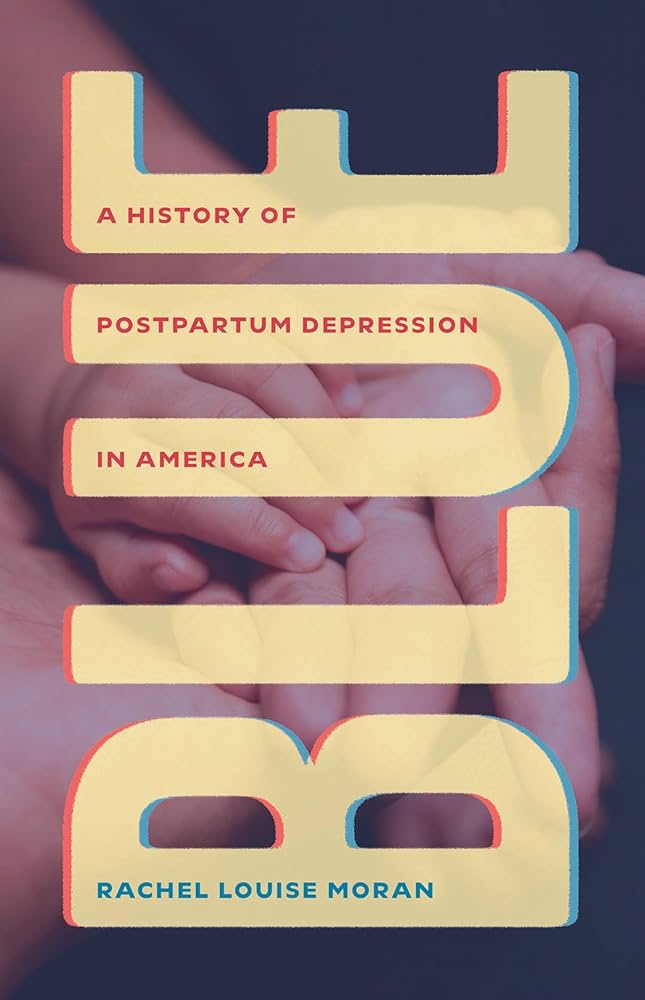

Rachel Louise Moran is Associate Professor of History at the University of North Texas. This interview is based on her new book, Blue: A History of Postpartum Depression in America (University of Chicago Press, 2024).
JF: What led you to write Blue?
RM: I was trying to brainstorm a topic for my second book, and I also happened to be pregnant for the first time. So I have a personal story and an academic story, and they came together here. Issues of pregnancy and the postpartum were on my mind, especially navigating whether I could continue taking anti-depressants while pregnant and thinking through my own risk factors. And I happened upon some surprising archival finds, letters from women telling the Children’s Bureau about postpartum mental illness back in the 1940s and 1950s. I wanted to know more about what postpartum depression meant in the present, and I wanted to know more about the context of those women’s letters. From there I just dug in!
JF: In 2 sentences, what is the argument Blue?
RM: Blue argues that the mainstreaming of postpartum mental illness was never inevitable but was instead the product of late-20th century coalitions of psychiatrists, psychologists, and women who survived postpartum illness. These advocates fought to legitimize and normalize women’s experiences, while also trying to avoid fraught medical and political battles over women’s health.
JF: Why do we need to read Blue?
RM: For the stories! This was my first foray into oral history, and I was nervous about it. I started off writing a much more impersonal history, but once I braved up and started interviewing the activists, psychologists, psychiatrists, and other folks who were there I learned so much. The personal experiences that drew people to this advocacy are often astounding, and the ways individuals channeled their own pain into action are riveting. I hope folks will read so they can learn from these advocates the same way I have.
JF: Why and when did you become an American historian?
RM: I always enjoyed history and read lots of historical fiction in high school, which primed me for an interest in the US especially. In college I double-majored in History and Women’s Studies, which meant I took every history course I could that had to do with gender, race, or politics. I mostly applied to women’s studies graduate programs but got into a cool program at Penn State where you can earn a dual history/women’s studies PhD. It was such luck, because I was really discovering at that time that while my thinking was shaped by feminist theory, I loved the more concrete nature of historical evidence. I could get at the questions I cared about, of understanding inequality and injustice and activism, and I could do so through compelling stories. I had some incredible mentors at Penn State, Jennifer Mittelstadt and Lori Ginzberg, who prepared me to do academic history while not losing sight of why historical questions matter to me. I graduated with the PhD in 2013, did a year as a postdoc, and have been at the University of North Texas since.
JF: What is your next project?
RM: I went from thinking about the postpartum mind to thinking about the postpartum body. This ended up sending me down some weird tangents and got me thinking about the history of the pelvic floor. My current project is a history of Dr. Arnold Kegel and his legacies for American sexuality.
JF: Thanks, Rachel!